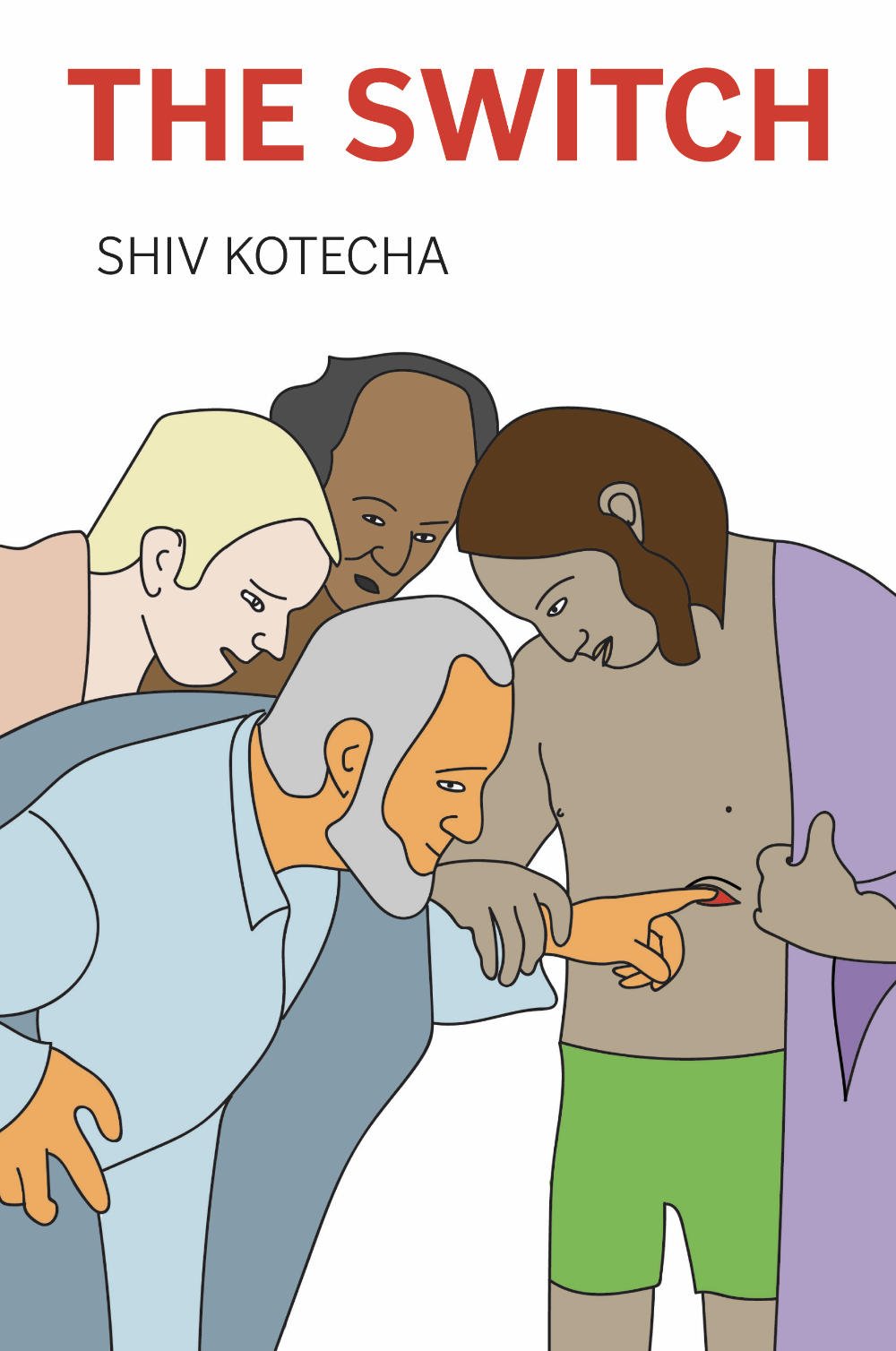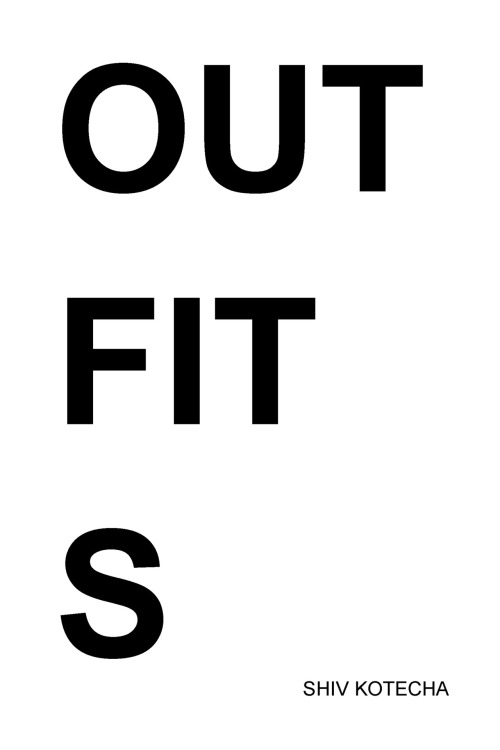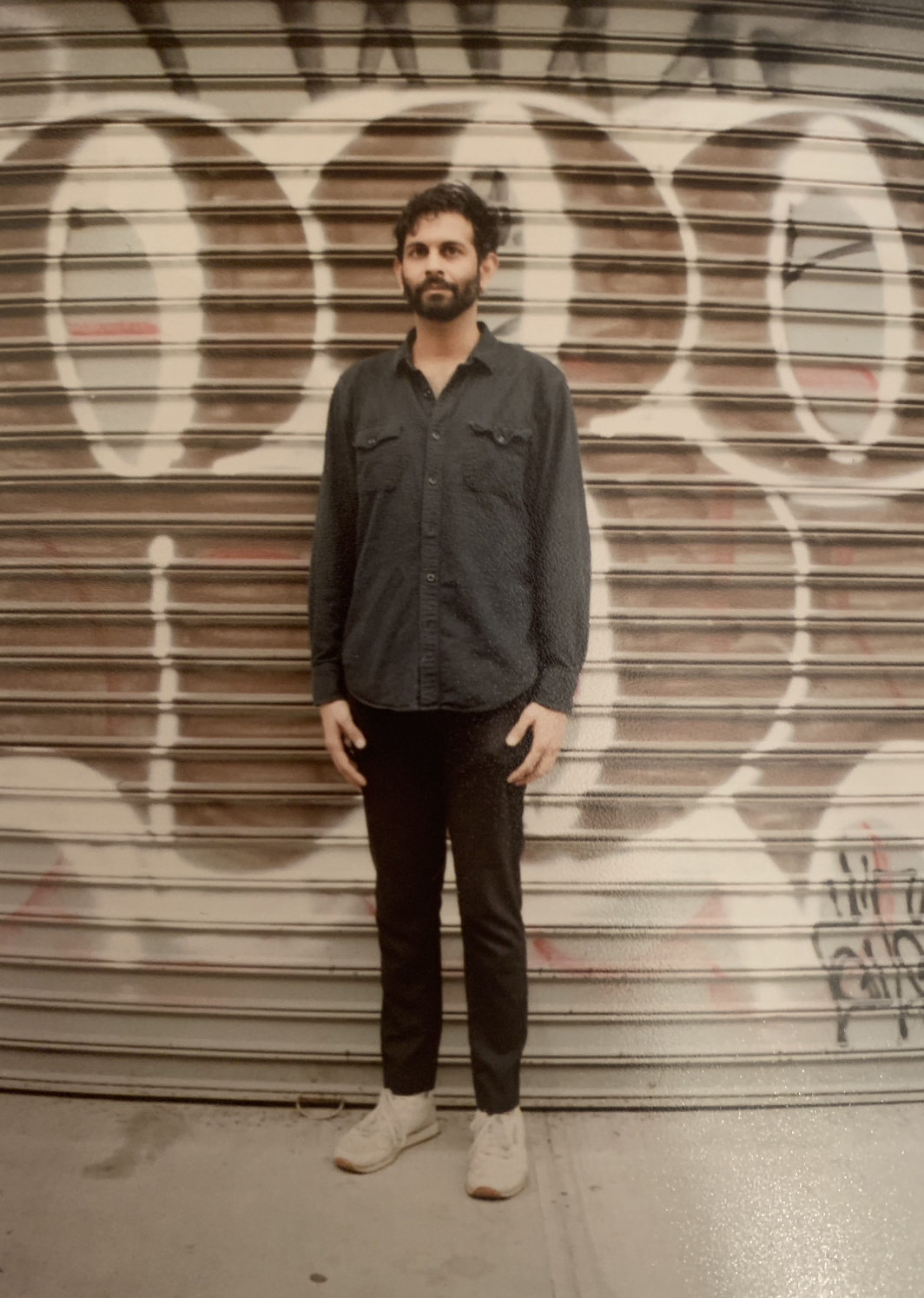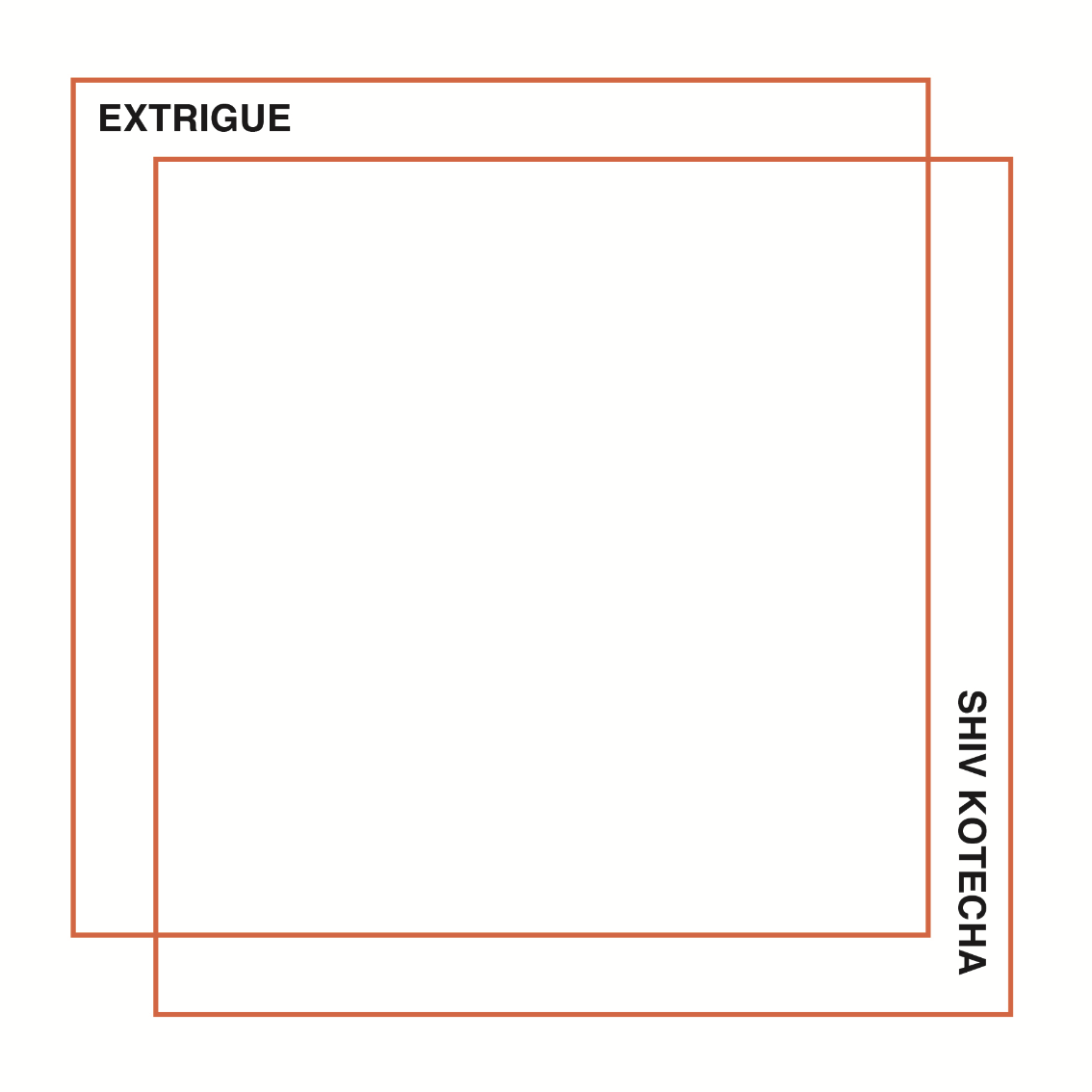email / instagram
Shiv Kotecha is a writer and editor living in New York. He is the author of four books of poetry: The Switch (Wonder, 2018), EXTRIGUE (Make Now, 2015), Outfits (Troll Thread, 2012), and Paint the Rock (Troll Thread, 2011). His writing appears in publications including 4Columns, Aperture, BOMB, Cultured, frieze, The Nation, and The Poetry Project Newsletter. For the Andy Warhol Foundation Arts Writers Grant, he co-edits Cookie Jar, a pamphlet series of experimental arts writing. He is Co-Chair of the Writing Discipline for Bard MFA—Milton Avery Graduate School of the Arts.
selected writing:
2025
› poem: “Dorsky Summer,” The Capilano Review
› interview: Kay Gabriel, BOMB
› fiction: “Alison is Real,” Poetry Project Newsletter
› interview: Valentin Noujaïm, Public Parking
› interview: Stanley Wolukau-Wanambwa, Public Parking
› poem: Exercpts from “Enervation,” Baest Journal
› review: Feliciano Centurión at Ortuzar Projects, Cultured
2024
› review: Nour Mobarak’s Daphne Phono at MoMA, Cultured
› essay: “‘Permanent Tresspass’: Looking Beyond the American Century,”frieze
› essay: “Sore Feeling: Revisiting The Dreamers,” frieze
2023
› poem: “Untitled Frustration Poem,” Ursula
› essay: Close Ups: On SPT’s Bay Area Shorts, The Back Room
› essay: Be Strong Bernadette: On Memory, Poetry Project Newsletter
› review: Pacific Club by Valentin Noujaïm, Artforum
2022
› poem: “TM” The Recluse
› essay: Hervé Guibert’s Last Laugh, The Nation
› review: Be Brave to Things by Jack Spicer, Poetry Project Newsletter
› essay: “Outliving Birds” for Interlude Docs
› convo: Favorite Books (with Diana Hamilton), Peach.
› profile: Tony Cokes, frieze.
2021
› interview: Bassem Saad, BOMB
› essay: “In the Air”: on filmmaker Mrinal Sen, MUBI Notebook
› essay: on Zoe Leonard’s Downtown (For Douglas), Aperture
› review: Carl Craig’s Party/Afterparty, 4Columns
2020
› essay: on O Fantasma (2000), 4Columns
›
review: Darrel Ellis’s A Composite Being, frieze
› essay: “Out of Earshot”: on Asha Bhosle, frieze
› essay: “Operations of Pleasure”: on artist Nayland Blake, frieze
› essay: “”It’s time you became a refugee!’” on Ritwik Ghatak, frieze
The Switch (Wonder, 2018)

The Switch is a book in three parts:
1. “I’m Sorry Shiv. I’m Sorry Diana”: an apology for friendship and desire, in fiction and verse
2. “Obedience Residency Manual”: the result of a self-imposed residency
3. “The Unlovable”: a long poem by an angry god
Purchase @ Wonder
Shiv Kotecha does for the word fucking what Catullus did for the word kissing. In The Switch, desire travels everywhere to its surprisingly specific destinations—to body parts aroused in their fashion, like a saint’s skull or a cock. Here love is as artificial as a courtly dialogue, and deeply felt, even spiritual. Here the arousal of the fragmented body is contemporary practice. Is one allowed to write such a book? Among the spectacular effects and turns and startling intimacies in The Switch, the most daring is its no-holds-barred pursuit of love.
―ROBERT GLÜCK
Shiv Kotecha’s deeply weird and affecting book The Switch works with prosaic measure and measured prose to compress the mess of everyday sexual feeling, the mess of everyday relating (both on and off the planet of the genital) into these often perfect lines
―HANNAH BLACK
“Poetry is never lost in a politics of refusal, and even in the most flirtatious behavioral studies of human and nonhuman desire for connection ... Kotecha’s ballast is clearly his feeling for the radiance of form-switching itself”
―CORINA COPP, BOMB
“it consists of an easy-to-read novel.“
―CLARA LOU, Book and Film Globe
Book design: Holly Melgard
Press:
Corina Copp, Editors Pick at BOMB
Charlie Markbreiter at The Believer
Rachel Vallen’s Winter Poetry Select at TANK
Clara Luo at Book and Film Globe
Katherine Beaman at Common Place Review
EXTRIGUE (Make Now Books, 2015)
EXTRIGUE is a book-length poem which renders the mise-en-scène of Billy Wilder’s 1944 noir Double Indemnity into an inventory of objects and actions. The book is composed of 419 numbered sections, each of which refer to the sequence of shots of Wilder’s film.
Sold Out
PDF: Download
Like a post-conceptual Pompeii, Shiv Kotecha’s EXTRIGUE archives the rubble of language as forensics. Freud's Little Hans meets Lynch's Mullholland Drive. EXTRIGUE works
repetition and perception in order to collapse time. Through his
numbered sequencing of the human stain, Kotecha pulls us into an endless
present: “345. A FLAME THAT FADES INTO A PHONE A MAN THAT FADES INTO A
MAN A LAMP THAT FADES INTO A BOOK SMOKE THAT FADES INTO A HAT.“ EXTRIGUE, outside of self, is the canoptic jar of the now.
―KIM ROSENFIELD
“If the items (numbered) in EXTRIGUE resemble Objects, Rooms, and Foods we’ve grown accustomed to in Stein’s Tender Buttons, it is because PAUSE is the tenderest button of them all. She never could have known.”
―DIVYA VICTOR, The Poetry Foundation
Book design: Holly Melgard
Press:
“Pause is the tenderest button: On Shiv Kotecha’s EXTRIGUE,” Divya Victor, Poetry Foundation
“Prismatic Ground: Year Five,” George Macbeth, e-flux
OUTFITS (Troll Thread, 2012)

OUTFITS arranges 100 outfits pulled from language from various plague narratives including The Decameron, Angels in America, and The Plague.
Troll Tread, 2012 / POD, PDF
Paint The Rock (Troll Thread, 2011)

Paint The Rock is a poetry book and a coloring book. In Part I (”Contents”), the insistant desire to paint American male celebrities, cultural figures, and politicians from memory is presented in verse. In Part II (”Contentments”), the poet offers instructions and space for readers to perform this activty themselves.
Troll Tread, 2011 / POD, PDF
A Polish translation of Paint The Rock, titled Namaluj Popka (trans. Piotr Marecki) was published by ha!art in 2017. The translation remakes the original experiment, replacing the global household names with figures from the Polish local popular imaginary in a ludic localization.

